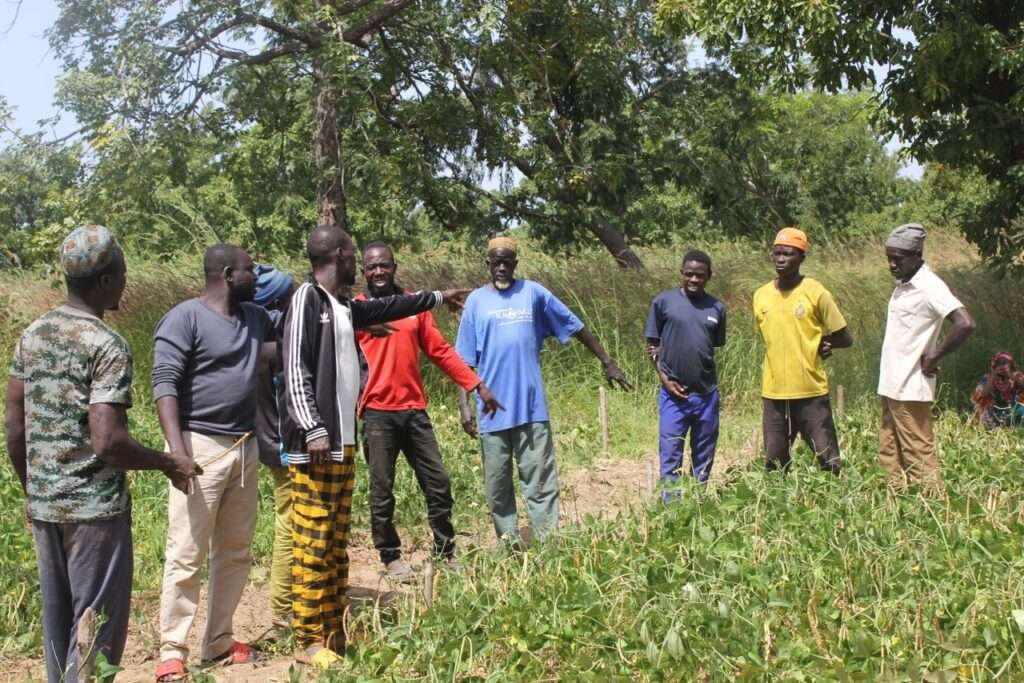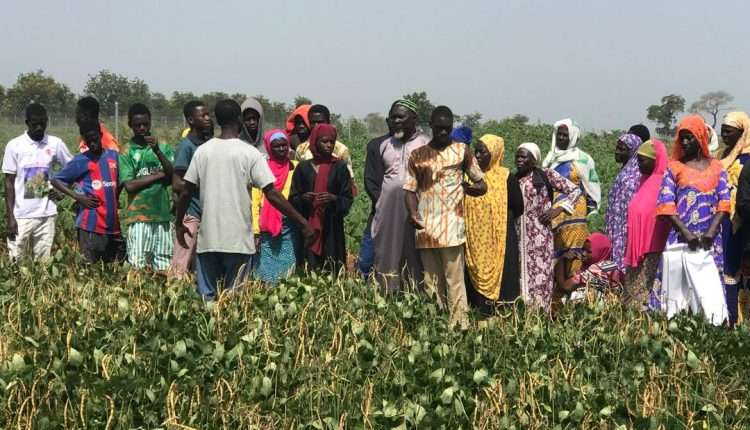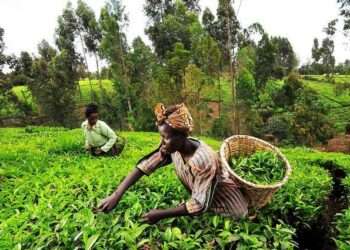The Council for Scientific and Industrial Research-Savanna Agricultural Research Institute (CSIR-SARI) has held a series of field days in the Northern Region of Ghana, showcasing two newly released high-yielding cowpea varieties—Awudu Benga and Kanton Bongdaa.
The events, held in the communities of Sanzee in the Mion District and Gbambu in the Gushegu Municipality, aimed to demonstrate the significant potential of these new varieties to address production challenges while equipping farmers with essential agronomic practices to enhance productivity.
The introduction of Awudu Benga and Kanton Bongdaa marks a major advancement in cowpea farming in Ghana. Cowpeas are a staple crop in the northern parts of the country, providing a critical source of protein and nutrition to many households. However, farmers have faced persistent challenges, including poor yields, pests, diseases, and the adverse effects of climate change. In response, CSIR-SARI, in collaboration with the Legume Systems Innovation Lab, developed these new varieties with enhanced characteristics designed to meet the specific needs of farmers in the region.
The field days were organized under the project titled “Scale-Up of Legume Systems Innovation Lab-Developed New Cowpea Variety Releases in Ghana,” funded by the Legume Systems Innovation Lab. The events attracted over 400 participants, including farmers, agricultural extension agents, and other key stakeholders in the agricultural sector. A majority of the attendees were women and youth, highlighting the growing interest and involvement of these groups in agricultural innovations.
Key Features of the New Cowpea Varieties
Dr. Emmanuel Yaw Owusu, a Cowpea Breeder at CSIR-SARI, led the demonstrations, providing farmers with valuable insights into the unique features of the Awudu Benga and Kanton Bongdaa varieties. These new cowpea varieties have shown impressive grain yields, producing an average of 2.52 and 2.62 tonnes per hectare, respectively. Dr. Owusu emphasized the varieties’ drought tolerance, resistance to common pests and diseases, and early maturity, with a growing period of just 65 to 70 days.
“One of the distinct advantages of these varieties is their adaptability to changing climatic conditions,” Dr. Owusu explained. “As farmers face increasing uncertainty due to climate change, having access to crops that can withstand these pressures is crucial for maintaining food security and improving livelihoods.”

Additionally, the varieties are designed for ease of harvest, with pods positioned above the canopy, making them accessible for both manual and mechanical harvesting. Dr. Owusu also noted their high nutritional content, including essential minerals like iron, calcium, and zinc, which are vital for improving household nutrition.
Training Farmers on Good Agronomic Practices
A key component of the field days was the training session on good agronomic practices led by Mr. Frederick Awuku, a Molecular Breeder at CSIR-SARI. Mr. Awuku emphasized the importance of using quality seeds from improved cowpea varieties and provided step-by-step guidance on essential practices such as land preparation, planting techniques, optimal planting times, and effective pest management strategies.
“We want to ensure that farmers have the knowledge and tools to maximize the potential of these new varieties,” Mr. Awuku stated. “By implementing these proven practices, farmers can significantly enhance the health and productivity of their crops.”
The training also covered post-harvest management practices, which are critical for reducing losses and ensuring that the harvested cowpeas maintain their quality and nutritional value. The focus on practical strategies and hands-on learning was well-received by participants, who expressed enthusiasm about applying the new techniques on their own farms.
The field days provided an opportunity for farmers to see firsthand the benefits of the new cowpea varieties and engage with experts on how to integrate them into their existing farming systems. Many farmers, like Mr. Adam Napari from Sanzee, expressed optimism about the impact of these innovations on their livelihoods.
“I have learned a lot today about the best ways to plant and care for these new cowpeas,” Mr. Napari shared. “I feel better prepared to improve my farm’s yield, which will help me get more income and provide nutritious cowpea to feed my family.”
Agricultural extension agents, like Mr. Abukari Kudus from the Sanzee community, also played a key role in encouraging farmers to adopt the new varieties and implement the recommended practices. “These new cowpea varieties are game-changers for our farmers. If they follow the training and adopt the best practices, we will see a significant boost in yield and productivity,” Mr. Kudus remarked.
According to Dr. Francis Kusi, Director of CSIR-SARI and the project’s Principal Investigator, the events were designed to provide farmers with hands-on experience and direct access to innovations that can transform their harvests and incomes.
“Our aim is to empower these farmers with knowledge and access to seeds that can lead to better harvests. By doing so, we are not only improving their incomes but also contributing to food and nutrition security in the region.”
Dr. Francis Kusi
Meanwhile, as the farmers prepare to adopt the new varieties, the future of cowpea production in Northern Ghana looks promising.





















